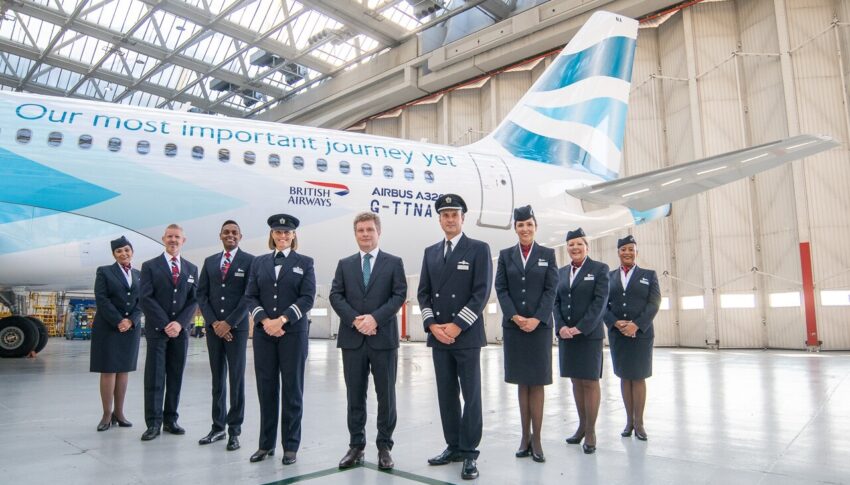Aviation has been clear since the beginning of the pandemic that its recovery from COVID-19 must be a sustainable one, with Inmarsat Aviation’s senior vice president for technology Kurt Weidemeyer recently telling us [link to Y94] that “Sustainability must be considered as part of every decision, and this is going to be particularly tough for an industry fighting its way out of a global pandemic.”
The greatest sustainability focus so far is split between three areas: greening the kerosene generation of engines via more sustainable aviation fuels, researching lower-carbon hydrogen power and electric aircraft, and improving air traffic management efficiency to reduce airline emissions.
As early as July 2020, then-director generation of airline trade body IATA — and former Air France-KLM chief executive Alexandre de Juniac — was emphasising that “the enormous amounts of money that governments are investing in the economic recovery from COVID-19 are an opportunity to create a legacy of energy transition for the aviation industry”.
For de Juniac, sustainable aviation fuels are a key focus for airlines: both “our biggest emissions reduction opportunity” and “the time is right to push it forward so that, together, we can achieve major carbon reductions on the way towards fossil fuel-free flight.”
There are certainly green shoots of progress here, and even some healthy saplings growing strongly. It seems like hardly a week goes by now without an airline launching a sustainable aviation fuel partnership, an airframer conducting a test flight using ever-greater concentrations of these fuels, or a fuel supplier revealing new pathways and processes to produce them. Hydrogen, too, is booming, while air traffic management improvements also look promising.
But beyond making flying more efficient on the flight operations side, airlines are making real efforts elsewhere to reduce the carbon footprint of travel, including at airports.
Indeed, British Airways launched its BA Better World campaign in September 2021, noting that it aims “to improve sustainability in the air and on the ground, including switching from diesel to renewably powered electric pushback vehicles and removing weight from its aircraft by introducing lighter seats and trollies, inflight magazines and paper flight manuals.”
The airline also outlined “efforts to remove single-use plastic and source more products made from recycled materials, including its First Class duvet and World Traveller Plus amenity kits.”
During COVID, single-use protective plastics made a necessary return, but as pandemic measures are relaxed — and as airlines design their post-COVID new normal passenger experience — many are making decisions based on sustainability imperatives.
But there are inherent sustainability tensions between some of these initiatives. As just one example, let’s examine the tension between lightweight single-use plastics and heavier alternatives.
On an ultra-long-haul flight of over fourteen hours, is the more sustainable choice a single-use lightweight plastic fork, a slightly heavier single-use fork made from bamboo, or a heavier reusable metal fork that would have a larger environmental footprint around its manufacturing, cleaning and storage process?
How does that choice change for a one-hour flight? What if the disposable fork (or indeed a reusable fork) is made of recycled plastic? What if that is a non-fossil bioplastic? And what about if the single-use fork can be recycled or the wooden one composted at the destination, rather than having to be treated as biosecurity waste and burned or buried in special landfills?
It’s clear that trusted, reliable, transparent and common-use carbon calculators would be a boon here. Indeed, this and other forms of digitalisation can certainly help, and is already helping. Many airlines are enabling book-the-cook preflight meal selection not just to give passengers the choice they want, but also to reduce the need to cater as many of each selection. This saves money on production, improves passenger experience, removes food waste, and reduces onboard weight — of the food, of the packaging, of the trolleys needed to store it, and of the waste space required to dispose of it.
The future is certainly green, as an episode of the McKinsey Podcast late last year highlighted.
“I don’t know a single CEO who believes that sustainability is not coming back to the agenda as a critical topic,” noted partner Alex Dichter. “It is something that our corporate clients are demanding, and our corporate clients are demanding it because their employees and their customers are demanding it of them. The good news is that those who are working on technology innovation—the development of sustainable aviation fuels, the use of hydrogen, electrification, and such—have been working around the clock and haven’t taken any time off.”
Author: John Walton
Published: 14th June 2022




